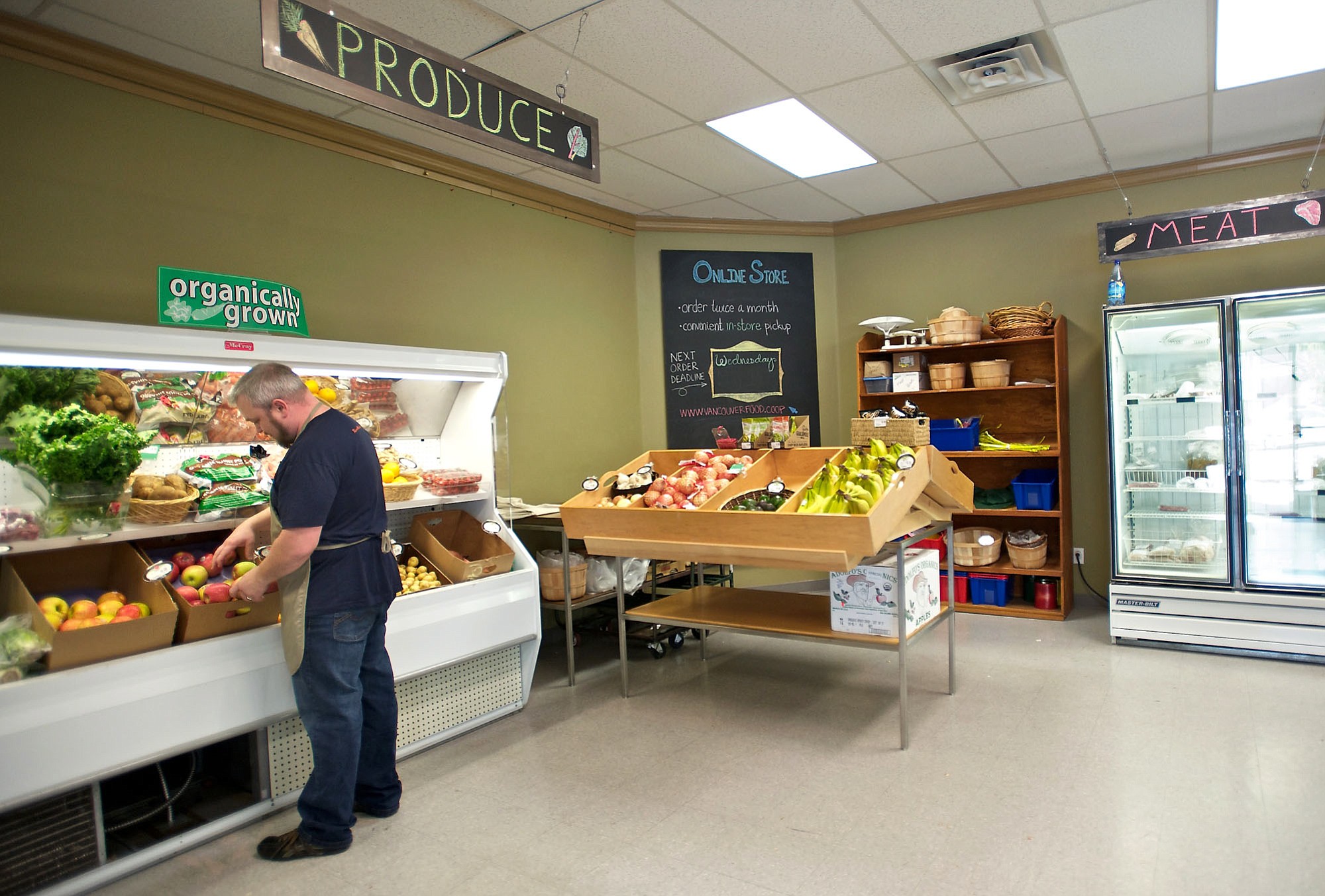Regular shoppers have grown used to walking into the Vancouver Food Co-op store at 1002 Main Street and finding shelves halfway bare — because there just never were enough regular shoppers.
On Thanksgiving week, after years of struggles to capitalize the store and bring in both member and visitor traffic, the Food Co-op’s board of directors voted to close the doors at last.
Liquidation of inventory is the top priority now, with a 15 percent discount on everything extended to members as of Friday, and to all shoppers as Wednesday. For the time being, the store remains open from 10 a.m. to 7 p.m. daily.
President Kirk Wright said the organization hopes to be out of the storefront within two weeks.
That doesn’t mean the Co-op is finished as an organization, Wright said. But it does mean that it will return to its long history of being a neat idea looking for a concrete way to come alive.
“The Co-op’s mission of community building and providing access to real food has not changed. The Board intends to explore how the Co-op might work to serve the community through food related education, group buying and other activities,” said a memo that went out to the co-op’s mailing list. “While many businesses lose money at start up, the slow growth and inconsistent community support have challenged the assumptions of the business plan.”
In the end, the Board decided it would be “irresponsible” to continue with a store that isn’t self-sustaining, the note said.
“It’s sad for all of us,” Wright said. “It’s also kind of typical of the cycles we’ve seen.” Over the past year or so, the Co-op’s cries for help and press coverage have resulted in “incredible upsurges in shopping interest,” Wright said — but those turned out to be temporary spikes, not a new normal.
Meanwhile, the previous board had voted, early in 2013, to turn down a $20,000 emergency loan because of a sense that the organization needed more than cash to survive.
What the store really needed was reliable community interest and steady sales of something like $30,000 per month, Wright said. But the last four months have all brought in revenues of just about half that — $15,000 to $16,000 per month, he said.
“It’s been stable but it hasn’t been enough,” said Wright. “There is community interest and then there are shoppers. That’s a Venn diagram that’s not perfectly overlapped.”
Even after the memo about closing the store went out, Wright said, community interest has turned up in the form of folks walking through the door to ask if they can still buy memberships. Staff has had to explain that they could — but that the doors would be closing and the co-op changing, and nobody was quite sure into what.
“The store is not the co-op,” Wright said. “The co-op will continue to exist until the members decide otherwise.”
Wright added that the board and membership may consider some sort of radically different “restart” in another location, but that he probably doesn’t have a future with the organization. He estimated that the co-op may owe as much as $40,000 in unpaid debt.
“We probably need to have a membership meeting to judge the interest in proceeding or trying to organize something new,” Wright said.
The co-op dream began with community activists Sunrise O’Mahoney and Heather Lehman, who first started promoting the idea about a decade ago. The organization was incorporated in 2006 and functioned at first as a membership-owned buying club.
A nationwide consulting group called Cooperative Development Services conducted a feasibility study in 2008 that didn’t foresee good things for a storefront; that lead to a schism as some dedicated members jumped ship while others decided to cross their fingers and go for it — following the examples of upstart food co-ops that managed to flourish despite the odds.
Now, Wright said, the whole situation begs the question: Are there enough people and enough interest to “get from where we are now to another store or another kind of business?”




